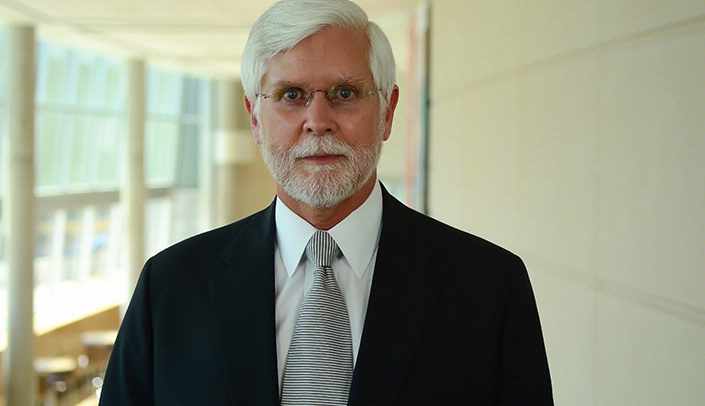Name: Kenneth Follett, MD, PhD
Medical school attended: University of Nebraska Medical Center
Location of your residency/fellowship training: University of Iowa Hospitals and Clinics, Iowa City
What residency/fellowship program at UNMC are you serving as program director for:
Neurological surgery
Number of trainees: 11
How long have you been the program director: 13 years
What made you chose to become the program director:
This was a natural progression of my resident training activities, which began while I was a junior faculty member of the Department of Neurosurgery at the University of Iowa Hospitals. By the time I was recruited to UNMC as chief of neurosurgery in 2004, I’d been engaged in a wide range of neurosurgery residency training activities that prepared me for the role of program director. It was common in neurosurgery at that time for the department chair or division chief to serve also as the program director to allow for the best integration of clinical and educational activities. When my predecessor, Dr. Leibrock, retired as UNMC chief of neurosurgery and program director, I assumed both positions.
What challenges do you foresee in graduate medical education in the future:
Financing graduate medical education will become more challenging in the face of reductions in federal and state funding and as reimbursement for health care services decreases, which reduces availability of institutional funds that can be directed toward support of GME activities.
GME leadership and program leaders will have to work hand-in-hand to make training as cost-effective as possible. Another area of concern relates to work compression experienced by residents. Compared to years past, the volume and intensity of patient care provided by residents have increased (clinical services have become busier, acuity has increased, lengths of stay have decreased) and new requirements for resident training are being implemented without eliminating old requirements.
Demands on the time and energy of residents are increasing, but the number of duty hours remains constant, which results in more dense, intense training that can jeopardize resident well-being. The challenge for programs will be to prioritize educational activities, minimize service activities, and make training as time- and energy-efficient as possible, while at the same time supporting the needs and goals of the institution.
What are the strengths of your training program:
Our program provides excellent clinical training in a collegial, supportive environment. Our clinical program has substantial breadth and depth thanks to the faculty, who have built subspecialty programs in nearly every area of neurological surgery. Our residents are bright and dedicated. They have a strong work ethic that helps them develop their technical skills and cognitive expertise (they tend to be among the top performers nationally on the written examination of the American Board of Neurological Surgery). Members of our group – faculty, staff, and residents – work well together as a team, which provides a learning environment that fosters success.
List some accomplishments that you are proud of:
I am most proud of the fact that we’ve more than doubled the size of our residency training program since I arrived in 2005. At the beginning of 2005, we had six residents (one per year). We received approval from the neurosurgery RRC to increase to nine residents in 2007, 12 in 2011, and 14 in 2013 (we are phasing the final few residents into our program).
The increases in complement were granted not just on the basis of volume, but required also that we demonstrate quality in training, so Residency Review Committee approval of these increases in resident complement serves as external validation of the strength of our program. This is a direct reflection of the commitment of our faculty, staff, and residents to developing and maintaining high standards for our training program, and they deserve credit for our success over the years.
Tell us three things about you that others may not know:
I won the "Runway Supermodel" contest at Teatro ZinZanni in Seattle a few years ago.
I am a Colorado native.
I enjoy participating in high performance driving events at racetracks, where I can drive fast legally.
